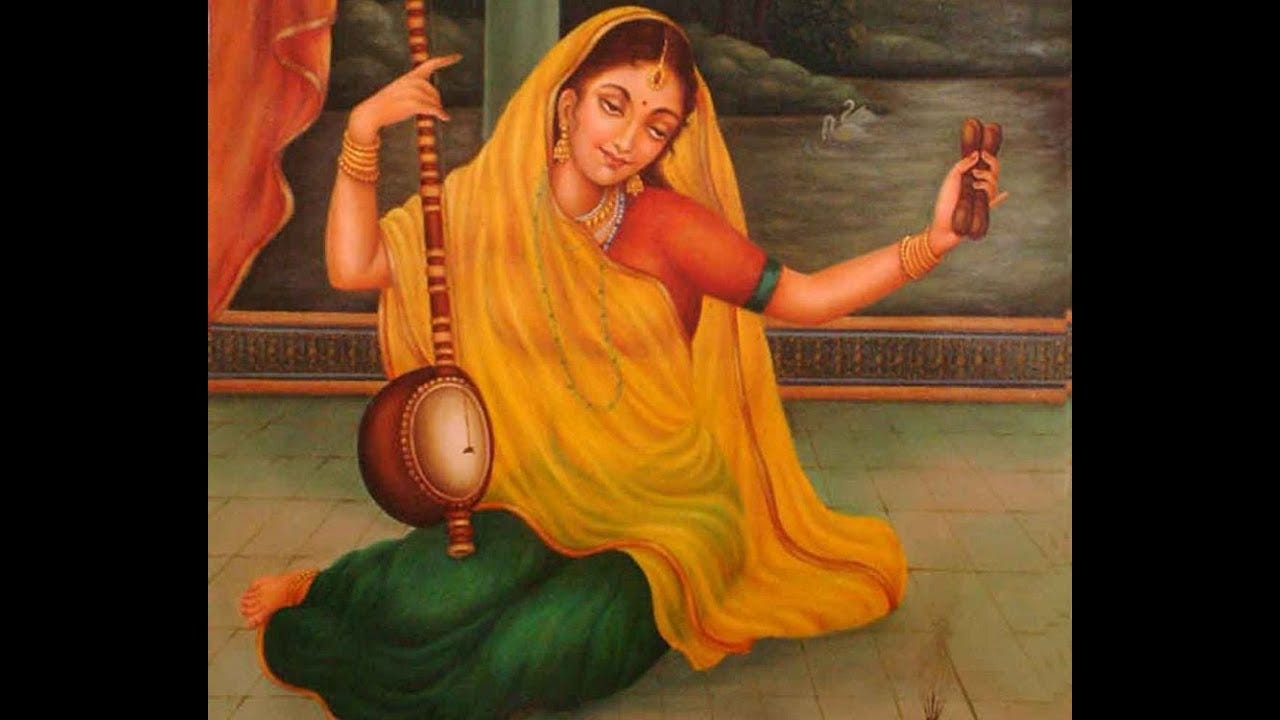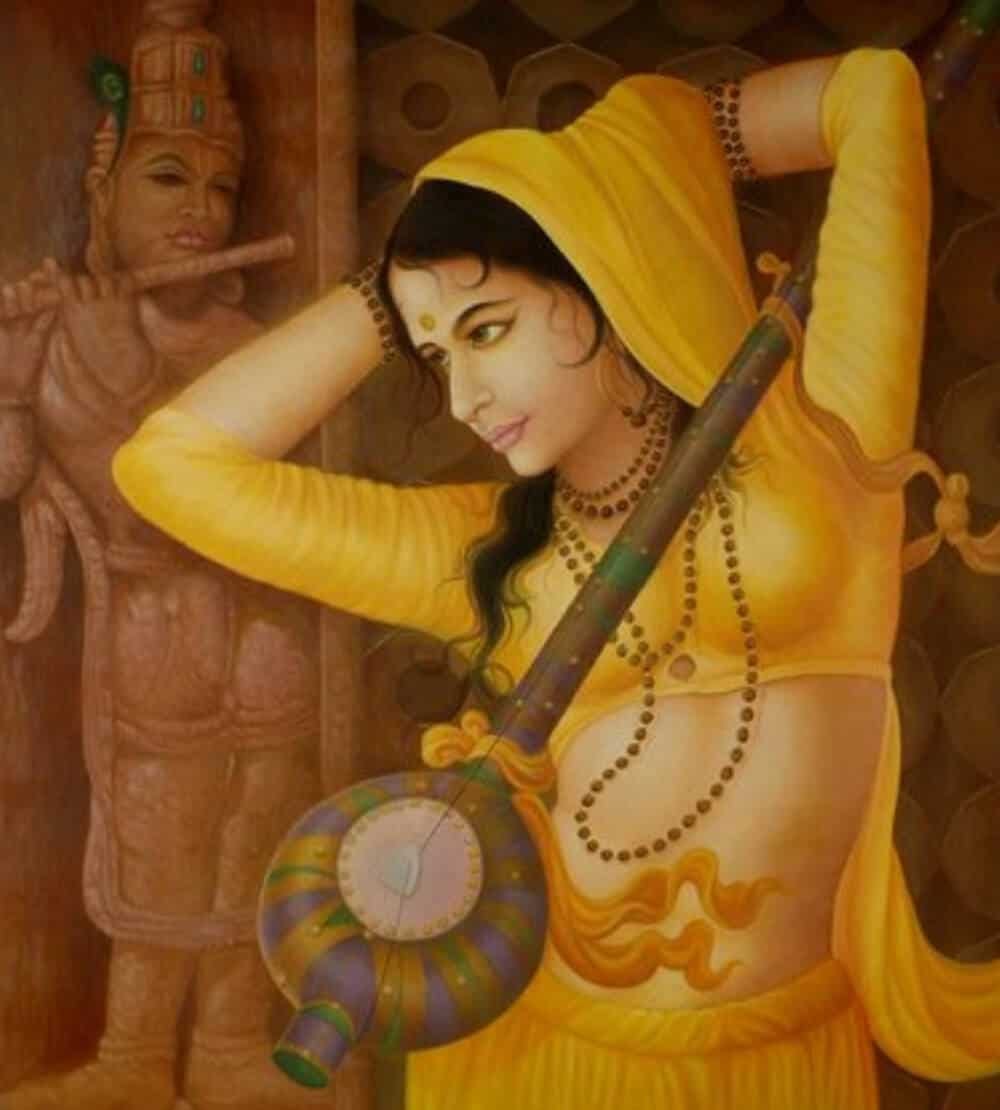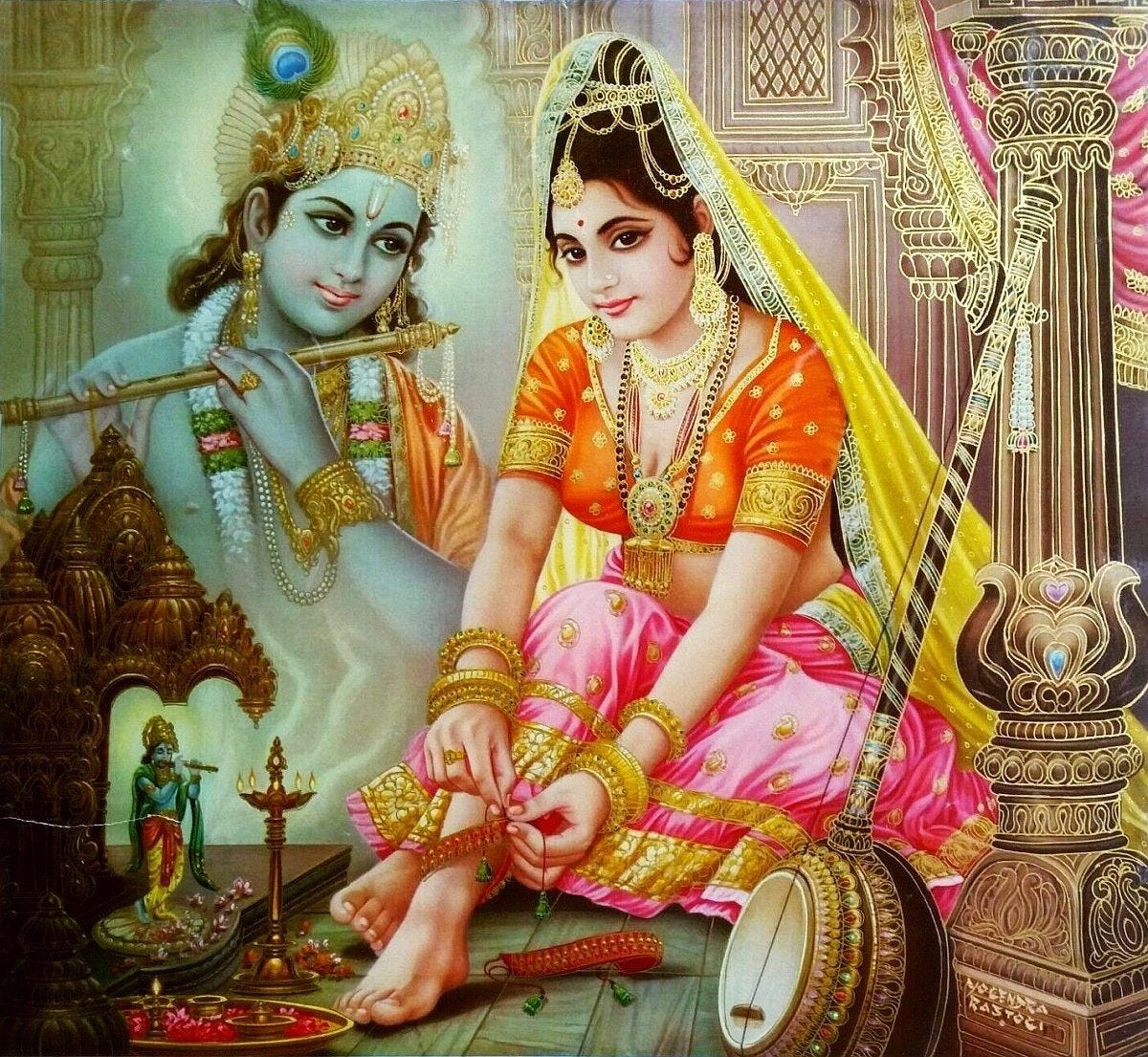The Life and Mystical Music of Mirabai
16th-century princess, songstress, composer, poetess, and ardent devotee of Lord Krishna. Mirabai lived an exemplary holy life to become one of the great singing saints of India.
What Is True Devotion?
They say true devotion is akin to a love affair on steroids. While you may still recover from a love affair, true spiritual devotion gives you no such chance. As a renowned mystic, Sadguru tells us,
“Devotion is not a love affair. Love itself is crazy, but shreds of sanity are attached to it. You can still recover. In devotion, there is no shred of sanity. Devotion does not allow recovery. Once you learn to sit here, consciously and lovingly, trusting existence the way it is, that is devotion. Devotion is not a belief system. Devotion is the sweetest way to be in existence.”
And 16th-century princess, songstress, composer, and poetess Mirabai was no ordinary devotee. In her soul-lifting poetry and songs, she speaks of a personal relationship with Lord Krishna as her lover, Lord, and her inspiration. The underlying theme of her every poetic piece is complete spiritual surrender, as is evident from one of her creations below,
“After making me fall for you so hard, where are you going?
Until the day I see you, no repose: my life, like a fish washed on shore, flails in agony.
For your sake I’ll make myself a yogini, I’ll hurl myself to death on the saw of Kashi.
Mira’s Lord is the clever Mountain Lifter, and I am his, a slave to his lotus feet.”
Mirabai lived an exemplary holy life, standing against the conventions of her times to become one of the greatest female saints of India who is still revered across the world for her magical devotional poems and songs. Meera Bai created more than 1300 prayer songs which are called "bhajans," which are still sung today across the world. She is also popularly called the incarnation of Radha, the Hindu deity.
The Life of Mirabai
Mirabai was born in 1498 AD as a princess in the royal household of Merta Rajasthan.
When she was only four years old, the child Mirabai saw a marriage procession going through her palace. She asked her mother, "Dear Mother, who will be my bridegroom? “Her mother jokingly said, “My dear Mira, Shri Krishna will be your bridegroom."
Little did the mother realize the profound effect of her words on young Mira’s life. As she grew, her desire to be with Krishna became stronger, and she believed that Shri Krishna would marry her one day. She started spending most of her life composing devotional songs and singing to her beloved Sri Krishna. Her singing fame began to spread far and wide, with followers flocking to hear her melodious voice and mesmerizing sermons.
However, her family had other plans for her. Mira’s father arranged for her to marry Prince Bhoj Raj, the eldest son of Rana Sanga of Chittor. The marriage was political and elevated Mira’s social position to a powerful princess. But Mira was not affected by the riches surrounding her. She would serve her husband dutifully and spend her evenings in devotion and singing to her beloved Sri Krishna.
Her in-laws disapproved of her piety and devotion to Krishna. Mira was subjected to slander and defamatory gossip that she was having affairs with other men. She was locked in her room, and her followers were mocked and beaten. Despite these hysterical slanders, Mirabai remained steadfast on her devotional path as her mystical fame continued to spread throughout India.
However, soon after Mira's husband died in a battle, Mira’s life became challenging in the palace. Her father-in-law, Rana Sanga, commanded her to commit Sati (the regressive tradition in which the wife commits suicide by throwing herself on her husband’s funeral pyre). However, Mira quietly refused to do saying,
“sati na hosyan girdhar gansyan mhara man moho ghananami“,
“I will not commit sati. I will sing the songs of Girdhar Krishna, and will not become sati because my heart is enamoured of Hari.”
However, as her family's relentless torments and hostility started playing havoc on her life, Mira made an important decision. Secretly, with some of her trusted followers, she slipped out of the palace and escaped to the holy city of Brindavan.
The Music of Mirabai
Brindavan was the place where the devotional music of Mirabai reached its zenith of popularity and ecstasy. Like a true devotee, she worshipped God wholeheartedly as Mirabai would spend her time in singing and composing songs in praise of Lord Krishna.
Her songs followed a simple form called "pada" (verse), a term used for a small spiritual song. Each pada would have a simple rhythm with a repeating refrain. These padas are written in Rajasthani and Braj, two common variants of the Hindi language spoken in and around Brindavan.
Soon her followers started composing music and singing these padas, and thus, "Bhajans" came into existence. The popularity of these bhajans, with the hypnotic devotional element in them, made Mira one of the greatest female saints of India. As John Stratton writes in his book Songs of the Saints of India about Mirabai,
"… she fired the imagination with her fearless defiance… the only one of her gender to have earned a place on the honor roll of north India Bhakti saints, she exerts a fascination that none of her male counterparts can match".
Her devotion and spiritual magnetism were infectious as her soulful songs created a spiritual revolution across India. In her songs, Mirabai combined human emotions like defiance, ego, longing, separation, and passion into a potent concoction inspiring thousand to take the path of devotion and spirituality. As Swami Sivananda, an ardent follower of Mirabai, states.
“Mira wafted the fragrance of devotion far and wide. Those who came in contact with her were affected by her strong current of Prem. Mira was like Lord Gauranga. She was an embodiment of love and innocence. Her heart was the temple of devotion. Her face was the lotus-flower of Prem. There was kindness in her look, love in her talk, joy in her discourses, power in her speech and fervour in her songs.”
Her Last Days
Mirabai continued to live the life of a hermit in Vrindavan, writing poems, having discourses with other sages, and providing guidance to her thousands of devotees. She also undertook pilgrimages, visiting places like Dwarka and Mathura associated with Lord Krishna.
She passed her last days at Dwarka and died in 1547. It is not known precisely how she died, but popular folklore says that she finally united with Lord Krishna by merging into his idol. One of her last Bhajans expresses the joy of union with Lord beautifully as she says,
“My Beloved dwells in my heart,
I have actually seen that Abode of Joy.
Mira’s Lord is Hari, the Indestructible.
My Lord, I have taken refuge with Thee,
Thy slave.”
Mirabai was a devotee of the highest order, and her story as a saint and courageous woman is a shining example of women's empowerment, even in today's world. Mirabai is an inspiration for all those women who aspire to make their own choices and stick to them, come what may, despite the social consequences and stigmatization.
Sources
· Bhakti Saint Mirabai Folklore and Life History
· The Devotional Poems of Mirabai-A. J. Alston
· Sweet on my lips: The love poems of Mirabai-Mirabai (Author), Louise Landes-Levi
· Mirabai - Famous Figures In History
· Mirabai: A Tale Of Simultaneous Devotion And Subversion
· Meerabai Story | The Meera Temple Of Chittorgarh
· Women Writing in India: 600 B.C. to the Present. vol. I, Susie Tharu and K. Lalita
· Songs of the Saints of India-John Stratton







